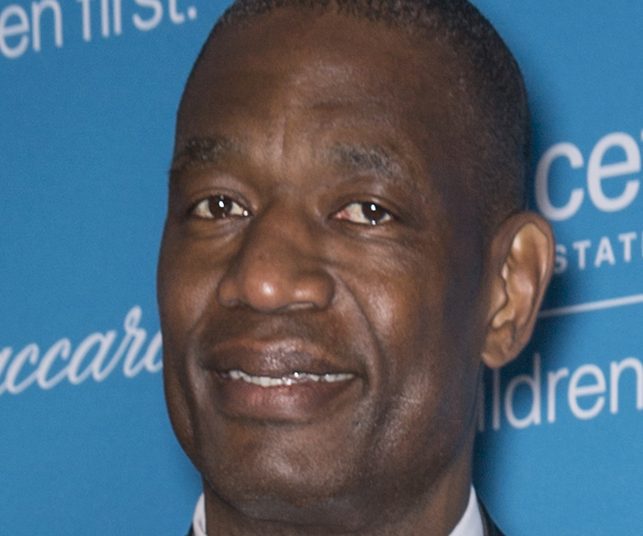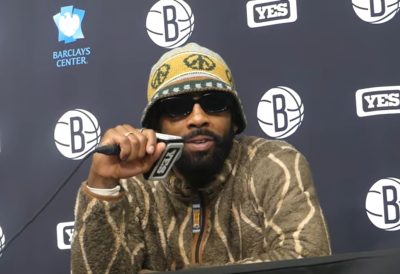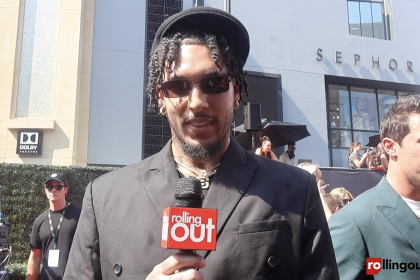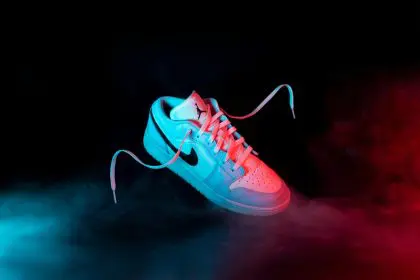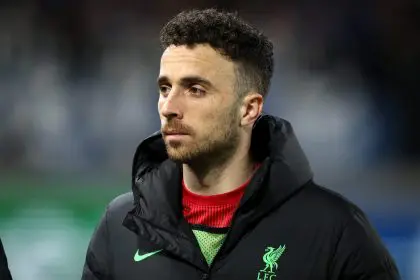The crowd roars as Dikembe Mutombo swats away another shot, his trademark finger wag following the ball’s trajectory into the stands. It’s a scene that played out countless times during his 18-year NBA career. But today, the setting isn’t Madison Square Garden or the Staples Center. It’s a dusty schoolyard in Kinshasa, and the kids erupting in cheers aren’t witnessing a game-saving block – they’re celebrating the opening of a new classroom, funded by the man whose larger-than-life presence dwarfs the freshly painted building behind him.
This is Mutombo’s new arena, and make no mistake, he’s still dominating.
“Basketball gave me a platform,” Mutombo says, his deep voice carrying the same intensity that once struck fear into opposing forwards. “But this – this is my true calling.”
At 7-foot-2, Mutombo has always been hard to miss. Yet it’s his outsized heart, not his towering frame, that’s leaving the most lasting impact. The four-time NBA Defensive Player of the Year has traded pick-and-rolls for philanthropic goals, becoming a humanitarian assists leader in retirement.
The journey from shot-blocker to life-changer began long before Mutombo hung up his size 22 sneakers. Even at the peak of his playing days, when he was racking up All-Star appearances and leading the league in rebounds, Mutombo’s mind often drifted back to his homeland.
“I’d be in the locker room, icing my knees after a game, and I’d think about the kids back in Congo who didn’t even have clean water to drink,” Mutombo recalls. “It lit a fire in me.”
That fire led to the creation of the Dikembe Mutombo Foundation in 1997, a move that raised eyebrows among some of his contemporaries. While other stars were launching clothing lines or investing in flashy startups, Mutombo was pouring his earnings into building a hospital.
“People thought I was crazy,” he chuckles. “But I knew this was bigger than basketball.”
The Biamba Marie Mutombo Hospital, named after Dikembe’s late mother, opened its doors in 2007. It stands as a gleaming testament to Mutombo’s vision, a $29 million, 170-bed facility that has treated hundreds of thousands of patients in a country where quality healthcare is often a luxury.
But Mutombo’s humanitarian highlight reel doesn’t end there. He’s taken on global health issues with the same ferocity he once brought to the paint. Polio eradication? Mutombo’s got his hands up, ready to swat it into oblivion. Malaria prevention? He’s boxing out the mosquitoes. Access to clean water? Mutombo’s making it rain where it’s needed most.
His former NBA colleagues watch in awe. “What Dikembe’s doing, man, it’s next level,” says Chris Paul, no stranger to philanthropic efforts himself. “He’s out there changing the game of life.”
Indeed, Mutombo has become a different kind of playmaker. He’s brokering deals between pharmaceutical giants and African governments, leveraging his unique position as both a son of Congo and a global sports icon. It’s a pick-and-roll play on a geopolitical scale, with life-saving medications as the ball being dished to those who need it most.
“Dikembe sees the whole court,” says Kenneth Frazier, executive chairman of Merck & Co., one of Mutombo’s key partners in the fight against neglected tropical diseases. “He understands the X’s and O’s of both international aid and corporate interests. It’s a rare skill set.”
This ability to navigate different worlds is nothing new for Mutombo. After all, this is a man who arrived at Georgetown University on an academic scholarship, planning to become a doctor, only to be recruited onto the basketball team by coaching legend John Thompson.
“Coach Thompson always said I could change more lives as an NBA player than as a doctor,” Mutombo remembers. “I think about that a lot. He was right, just not in the way either of us expected.”
The NBA has taken notice of Mutombo’s off-court prowess. Commissioner Adam Silver points to him as the gold standard for player engagement and social responsibility. “Dikembe has redefined what it means to be an NBA ambassador,” Silver says. “He’s not just representing our league; he’s representing the best of humanity.”
This praise isn’t lost on Mutombo, but he’s quick to deflect it. “I’m just a point guard now,” he insists. “I’m setting up the alley-oop for the next generation to slam it home.”
That next generation is watching closely. Young NBA stars seek out Mutombo for advice on starting their own foundations. He’s become a mentor, a role he relishes as much as any of his on-court accomplishments.
“I tell them, ‘Don’t wait until retirement to make a difference,'” Mutombo says. “Your platform is biggest when you’re playing. Use it.”
As the sun sets over Kinshasa, casting long shadows across the schoolyard, Mutombo takes one last look at the new classroom. The kids have long since gone home, but their excited chatter still rings in his ears. It’s a sound sweeter than any arena cheer, a reminder of why he pushes himself as hard now as he did in his playing days.
“People always ask if I miss basketball,” Mutombo says, a smile creasing his face. “I tell them, ‘Why would I? I’m still in the game. The stakes are just higher now.'”
With that, he turns and walks away, his shadow stretching out behind him. It’s the shadow not just of a basketball legend, but of a man whose biggest impacts have come far from any hardwood court. In this game of life, Dikembe Mutombo isn’t just blocking shots – he’s changing the score.

